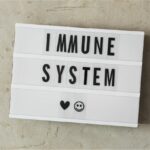Do you ever wonder how alcohol affects your immune system? Understanding the impact of alcohol on your body's defense system is crucial, as it can have significant consequences. Alcohol impairs the activity of immune cells, making it harder for your body to fight off infections.
It also increases your vulnerability to respiratory illnesses and contributes to chronic inflammation. Additionally, alcohol can compromise the effectiveness of vaccines.
By delving into the science behind alcohol's influence on immunity, we can make informed decisions about our health.
Alcohol's Effect on Immune Cells
You may frequently wonder how alcohol affects your immune cells. Well, let's dive into the scientific evidence to understand the impact of alcohol on your immune system.
Firstly, let's look at alcohol's effect on allergies. Studies have shown that alcohol consumption can exacerbate allergic reactions. It can weaken the immune response, making you more susceptible to allergens. This is particularly true for individuals with pre-existing allergies.
Moving on to autoimmune disorders, alcohol can have a detrimental effect on these conditions as well. Autoimmune disorders occur when the immune system mistakenly attacks healthy cells in the body. Alcohol consumption can further impair the immune system's ability to regulate this response, leading to increased inflammation and tissue damage. In fact, research has shown that alcohol can worsen symptoms and progression of autoimmune disorders such as rheumatoid arthritis and lupus.
It is important to note that these effects are dose-dependent. Moderate alcohol consumption may have less pronounced effects on the immune system compared to heavy or chronic alcohol use. However, even moderate consumption can still have negative consequences, especially for individuals with allergies or autoimmune disorders.
Impaired Immune Response to Infections
Excessive alcohol consumption can compromise the immune system's ability to effectively respond to infections. When you consume alcohol in large amounts, it can impair the normal functioning of your immune system, leaving you more vulnerable to infections and making it harder for your body to fight off pathogens. This impaired immune response can have serious consequences for your overall health and well-being.
Here are five ways in which excessive alcohol consumption can affect your immune system's ability to respond to infections:
- Alcohol can impair wound healing: Heavy alcohol consumption can delay the healing process of wounds, making it easier for infections to develop and spread.
- Alcohol can increase the risk of infections: Alcohol weakens the immune system's ability to recognize and destroy harmful pathogens, increasing the likelihood of developing infections.
- Alcohol can worsen autoimmune diseases: Autoimmune diseases occur when the immune system mistakenly attacks healthy cells. Alcohol can exacerbate these conditions, leading to more severe symptoms and complications.
- Alcohol can suppress immune cell function: Alcohol can suppress the production and function of immune cells, impairing their ability to fight off infections effectively.
- Alcohol can disrupt the gut microbiome: The gut microbiome plays a crucial role in immune function. Excessive alcohol consumption can disrupt the balance of the gut microbiome, compromising the immune system's ability to respond to infections.
Understanding the impact of alcohol on the immune system's response to infections is essential for promoting overall health and well-being. It's important to be mindful of your alcohol consumption and make informed choices to support a healthy immune system.
Increased Susceptibility to Respiratory Illnesses
Consuming alcohol in large amounts can increase your susceptibility to respiratory illnesses. Research has shown that alcohol has a negative impact on lung health and can lead to alcohol-related lung infections.
Alcohol has been found to impair the normal function of the immune system, making it less effective in fighting off infections. This can leave you more vulnerable to respiratory illnesses such as pneumonia, bronchitis, and acute respiratory distress syndrome (ARDS).
Alcohol can directly damage the cells lining the airways and lungs, leading to inflammation and an increased risk of infections. It also weakens the cilia, tiny hair-like structures that help remove mucus and debris from the lungs. This impairment in the lung's defense mechanisms can result in a higher likelihood of developing respiratory infections and a longer recovery time.
Furthermore, alcohol can interfere with the production of immune cells and antibodies, compromising the body's ability to mount an effective immune response against respiratory pathogens. It can also suppress the inflammatory response, which is crucial for clearing infections and promoting healing.
Alcohol and Chronic Inflammation
Alcohol contributes to the development of chronic inflammation in the body. This chronic inflammation can have detrimental effects on your overall health and well-being. Here are some important points to consider:
- Alcohol and gut health: Excessive alcohol consumption can disrupt the balance of bacteria in your gut, leading to a condition called dysbiosis. This imbalance in gut microbiota can trigger chronic inflammation throughout the body.
- Alcohol's impact on liver function: The liver plays a crucial role in detoxifying the body and regulating inflammation. However, excessive alcohol consumption can lead to liver damage, impair its ability to function properly, and promote inflammation.
- Chronic inflammation has been linked to a wide range of health conditions, including cardiovascular diseases, diabetes, autoimmune disorders, and certain types of cancer.
- The immune system plays a key role in regulating inflammation. However, chronic alcohol consumption can impair immune function, leading to a dysregulated inflammatory response.
- It's important to note that moderate alcohol consumption may not have the same detrimental effects on inflammation as heavy or chronic alcohol use. However, it's always recommended to consume alcohol in moderation to minimize potential risks to your health.
Impact on Vaccine Effectiveness
To maximize the effectiveness of vaccines, it's important to be mindful of how alcohol can impact your immune system. Alcohol consumption can have detrimental effects on your body's ability to produce a strong immune response to vaccines.
One of the ways alcohol can impact vaccine effectiveness is through its association with allergic reactions. Alcohol has been shown to increase the risk of developing allergies, and this can interfere with the body's response to vaccines. A study conducted by the National Institute on Alcohol Abuse and Alcoholism found that alcohol consumption can lead to an increase in IgE levels, which are antibodies associated with allergies. When the immune system is busy dealing with allergic reactions, it may not be able to mount a robust response to the vaccine.
Additionally, alcohol consumption has been linked to autoimmune diseases, which can also affect vaccine effectiveness. Autoimmune diseases occur when the immune system mistakenly attacks healthy cells in the body. Alcohol has been shown to disrupt the balance of the immune system, increasing the risk of developing autoimmune diseases. When the immune system is already compromised, it may not be able to respond adequately to the vaccine and produce the necessary immune response for protection.
- Overcoming Emotional Intimacy Challenges With Alcohol Misuse - November 18, 2023
- Overcoming Alcohol's Impact on Emotional Intimacy: 13 Essential Tips - November 18, 2023
- 6 Ways to Overcome Emotional Intimacy Challenges With Alcohol - November 18, 2023






